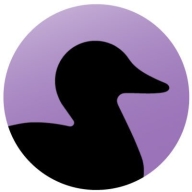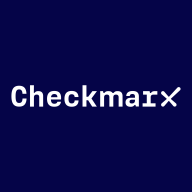

Black Duck SCA and Checkmarx Software Composition Analysis compete in software composition analysis. Checkmarx is perceived as the superior product due to its comprehensive feature set, justifying its higher cost.
Features: Black Duck SCA offers strong integration capabilities, robust vulnerability detection, and extensive open-source management support. Checkmarx Software Composition Analysis specializes in real-time analysis, risk prioritization, and providing actionable security insights.
Room for Improvement: Black Duck SCA could enhance ease of configuration and user interface intuitiveness. Improvements in vulnerability identification accuracy are needed as well. Checkmarx might benefit from enhanced integration features, reduced false positives, and simplified documentation for beginners.
Ease of Deployment and Customer Service: Checkmarx Software Composition Analysis provides seamless cloud and on-premise deployment along with strong customer support. Black Duck SCA offers flexible deployment options but requires additional configuration, posing challenges in initial setup.
Pricing and ROI: Black Duck SCA is cost-effective, offering solid ROI with lower setup expenses. Checkmarx, though higher in cost, demonstrates a strong return on investment due to its advanced features and depth of insights.
| Product | Market Share (%) |
|---|---|
| Black Duck SCA | 15.7% |
| Checkmarx Software Composition Analysis | 2.5% |
| Other | 81.8% |


| Company Size | Count |
|---|---|
| Small Business | 6 |
| Large Enterprise | 16 |
| Company Size | Count |
|---|---|
| Small Business | 7 |
| Large Enterprise | 8 |
Black Duck is an essential tool for software composition analysis and license compliance. It identifies vulnerabilities effectively and supports security management in DevOps environments, offering integration, performance stability, and community support.
Organizations rely on Black Duck for seamless integration in CI/CD pipelines, thorough scanning of source and binary codes, and management of operational risks associated with open-source and commercial licenses. It plays a crucial role in security risk management and delivers a robust policy management framework. Users value its ease of use and reliable community support while benefiting from its comprehensive dependency visualization capabilities. Despite its strengths, there is room for enhancement in integration with other tools, UI friendliness, and reporting features.
What are Black Duck's key features?
What should users look for in ROI?
Enterprise environments use Black Duck extensively for security, compliance, and risk management, ensuring software meets regulatory standards and mitigates vulnerabilities. Its implementation in specific industries aids in controlled and secure software development processes, underlining its role in maintaining rigorous security standards while delivering dependable performance.
Checkmarx Software Composition Analysis (SCA) helps organizations manage the risks associated with open source and third-party components in their software applications. While leveraging open source libraries and third-party dependencies is common practice, it can also introduce security vulnerabilities and license risks.
Checkmarx SCA offers a multifaceted approach to managing these risks by:
Automatically scanning project repositories, build configurations, and manifests to create a comprehensive inventory of all components, including version information and associated licenses.
Performing vulnerability assessments on each component, including identifying and prioritizing actual exploitable or reachable vulnerabilities.
Protecting organizations from software supply chain attacks involving malicious packages, such as the XZ Utils backdoor.
Identifying licenses associated and providing insights into license obligations, restrictions, and potential conflicts.
Integrating seamlessly into existing development workflows and CI/CD pipelines.
Providing actionable remediation guidance to help organizations address identified vulnerabilities and compliance issues effectively.
We monitor all Software Composition Analysis (SCA) reviews to prevent fraudulent reviews and keep review quality high. We do not post reviews by company employees or direct competitors. We validate each review for authenticity via cross-reference with LinkedIn, and personal follow-up with the reviewer when necessary.